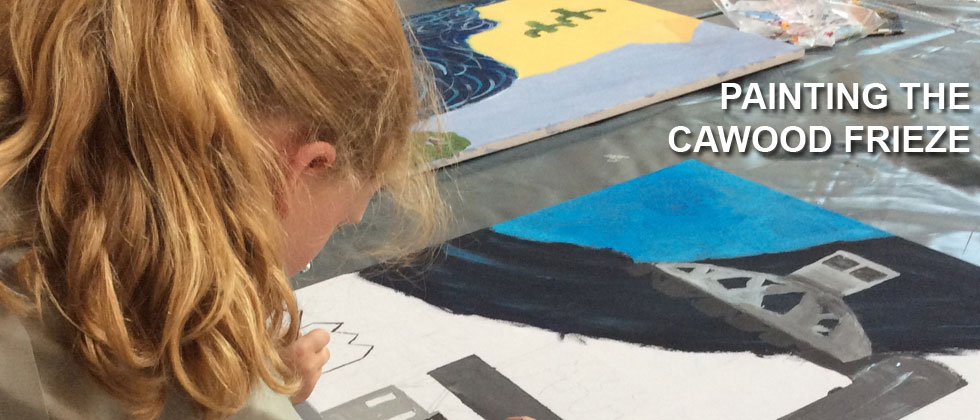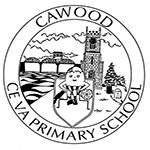
Curriculum statement of intent
Cawood Church of England Primary School is a very successful and friendly school, that is built of the secure foundation of Christian Values. We aim to provide an excellent education for all the children at Cawood and the surrounding area. We believe that every child has the ability to succeed and a gift that can develop and improve through the engagement of a relevant, interesting, challenging and creative curriculum. We recognise the skills, abilities and talents of each individual and we aim to create a happy learning environment in which all children can discover their uniqueness, abilities and talents. Our vision is for all children to be happy and confident learners developing emotionally, physically, intellectually and spiritually as well as having good emotional well – being. The rational for our curriculum is based on our four Christian values that lie at the heart of our school and permeate our vision:
- Perseverance
- Friendship
- Thankfulness
- Wisdom
These are known in school as PFTW.
- Perseverance
We believe that hard work and determination are important and when things get tough, that’s the time to give your best effort and to keep going. There are many people in the Bible and modern day examples of people who have shown great perseverance and achieved great things.
- Friendship
We believe that friendship is very important. Jesus instructed his disciples, and the people, to love one another. We deeply care for one another at school and we want everyone to achieve and do their very best in life. Our friendship is very important. We like it when we are helped and encouraged by a friend and we like to help and support one another in our work and in play and leisure time.
- Thankfulness
We have much to be thankful for at Cawood. We are thankful to be a part of creation and to be part of a caring community. We are thankful for our friends and family and that we can come to school to learn about our world. Through our thankfulness we value people, our school and the many wonderful things that we have.
- Wisdom
At school we develop our skills, understanding and knowledge. We value our experiences and hope that we learn from them as we grow older. Our learning is very important to us so that we can develop and grow to be happy and confident individuals at school, and then in our places of work. We always want to make good decisions and good choices in life so that we can fulfill our lives and flourish as individuals. We aim to always learn from our errors and mistakes and go on to achieve our best, making the most of each day.
We are extremely proud of all our children and value every strand and aspect of their achievement and progress.
We aim to provide a curriculum that is meaningful but also fun, creative, and essentially, enriching and challenging. We encourage all members of our school community to develop the skills and confidence to reach their full potential in every aspect of life. We strive to provide high standards of teaching and excellent learning opportunities in a safe, friendly and supportive environment. We believe that a strong partnership between school, home, parish and community is essential to our children’s development. At Cawood, everyone matters and we whole heartedly believe in our statement of stepping forward together.

Relevant policies:
Curriculum:
All aspects of The National Curriculum are taught and composed of ten subjects and Religious Education. Four subjects form the core of the curriculum: English, Mathematics, RE and Science. The other foundation subjects are: Computing, History, Geography, Design Technology, Art and Design, Music and Physical Education. We also teach Spanish as a Modern Foreign Language to all children in Key Stage 2.
The National Curriculum programmes of study are followed for all subjects with the exception of RE where, we follow the York Diocesan Scheme of Work for RE.
Children’s progress is assessed against the curriculum with attainment described as meeting age related expectation (A2) below age related expectations (A1) above age related expectations and at greater depth (A3) or exceptional – beyond age related expectations (A4).
At Cawood we believe that the quality of education comes from structure and organisation of the curriculum and the effective way the curriculum is brought to life through rich, skilful and engaging teaching that encourages and helps children to learn.
The youngest children in school follow the Early Years Foundation Stage curriculum.
We recognise that there is a sequence of development which all children follow, the way genetic patterns are expressed is influenced by experiences which trigger and shape both neural connections and learned behaviours. Children’s development therefore is seen to occur not in a predictable linear progression, but in a web of multiple strands with rates of progress varying between children, and subject to influences by factors both within and outside of the child.
(with reference from Tickell Report (The Early Years: Foundations for life, health and learning, An Independent Report on the Early Years Foundation Stage to Her Majesty’s Government by Dame Clare Tickell, pp. 85-91) 2011, D16(8857)/0311
Central to our early year’s curriculum are the characteristics of effective learning: Playing and exploring, active learning, creating and thinking critically.
Within the early year’s framework, we cover three important prime areas of learning – Personal, Social and Emotional Development, Physical Development, and Communication and Language – and four specific areas – Literacy, Mathematics, Understanding the World, and Expressive Arts and Design.
We believe in an exciting and engaging curriculum built on experiential learning where children are involved in first hand, practical learning. This includes the use of specialist visitors coming in to school and visits to places of interest or special events, including the offer of a residential visit for our Year 5 and 6 children. In addition, children are offered a wide variety of learning opportunities both during and after the school day. There is a range of before and after school clubs including football, rugby and multi sports and baking, recorders and (Summer) country dancing. A leading Spanish teacher from Selby High school comes into school on Thursday to teach Spanish to children in years 4,5 and 6. And there are opportunities to learn a musical instrument.
We are passionate about giving children wider opportunities and enjoyment of learning. In addition to our activities, the children enjoy lunch time clubs for sewing art and crafts, reading, football, netball, choir and card games within the school day. The children enjoy coming to school and extra curriculum activities.
We monitor and track children’s progress through assessments made on a regular basis. This enables us to provide extra support when necessary and challenge children who are working at greater depth. Parents and carers are regularly informed of their child’s progress through parent consultations, annual reports, Provision Maps (where appropriate) individual provision plans and more informal meetings with their child’s teacher throughout the year.
Children undertake statutory assessment at the start of the academic year in reception. This is called the Reception Base Line (RBS). Children in Year 1 have a statutory Phonics Screening check. Further statutory assessments are made at the end of Key Stage 1 (Year 2) and at the end of Key Stage 2 (Year 6).
We recognise the importance of a clear systematic progression of good phonics teaching. In Reception and KS1, we use the Read Write Inc programme . All children follow the programme through to completion and it is our goal that all our children are reading by the age 6. We are confident with this approach as the children make consistently good progress in reading and writing throughout the school.
Literacy in KS2 at Cawood Primary School.
Literacy in KS2 builds on the children’s reading and writing capabilities developed through RWInc at KS1. At Cawood children are encouraged to develop spoken language to support their reading and writing. Literacy sessions provide opportunity to use purposeful speaking and listening activities to help support language acquisition and vocabulary understanding. Children discuss literature and teachers model responses, encouraging children to verbalise their thoughts before they start writing.
- From year 2 to year 6 we use a range of quality texts to support the writing process to hook the children in and to demonstrate writing techniques, focusing in on vocabulary
- From year 2 we use the Jane Considine ‘write stuff’ materials to teach the writing process. This is based on two guiding principles; teaching sequences that slide between experience days and sentence stacking lessons. With modelling at the heart of the lesson, the sentence stacking lessons are broken into bite-sized chunks and taught under the structural framework of the Writing Rainbow. Teachers prepare children for writing by modelling the ideas, grammar or techniques of writing.
In KS2 children continue to further their understanding of spelling pattern through the RWInc spelling programme, incorporating the National Curriculum Y3/4 and Y5/6 word list.
There is a well stocked reading area in all classrooms and a school library. We actively promote a love of reading through our everyday discussions as well as themed days, and events over the year including World Book day and a reading breakfast.
Daily mathematics and English lessons take place across the school and there are additional sessions to support learning focussing on spelling, punctuation and grammar, handwriting and reading.
We promote the mastery approach in our teaching of maths and across the curriculum.
We aim for all children to reach the age-related expectations and then to go further and to begin to think and reason at greater depth through very good teaching and effective questioning.
We use the Maths No Problem resources and teach the children in single year groups. This allows the children to learn in their smaller year group with a clear focus on the specific scheme of work and learning objectives. Children are given the opportunity to learn through practical (concrete), pictorial and abstract investigative and problem solving activities and through a range of different curriculum subjects.
We believe that teaching maths for mastery is a transformational approach to maths teaching which stems from high performing Asian nations such as Singapore. When taught to master maths, children develop their mathematical fluency without resorting to rote learning and are able to solve non-routine maths problems without having to memorise procedures.
For more detailed information about each of the curriculum areas of learning, please click on the Curriculum tab where there is a summary of each subject.

